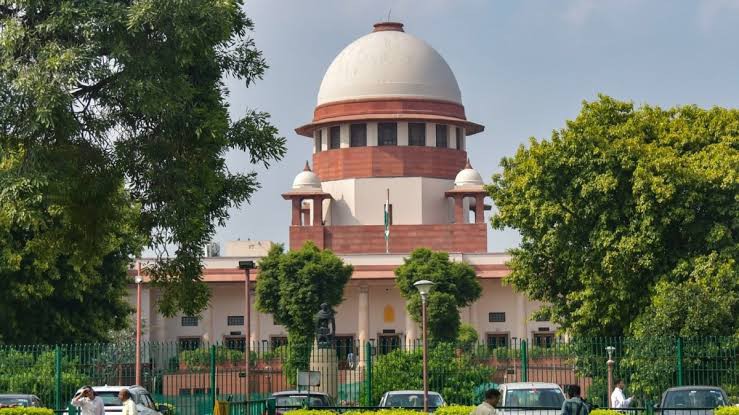
Abortion law in india

16.10.2023
Abortion law in india , Daily Current Affairs , RACE IAS : Best IAS Coaching in Lucknow
|
For prelims: Important point, What is the law on abortion in India, For mains:Medical Termination of Pregnancy (MTP) Act, 1971,MTP (Amendment) Act, 2021,Rights of the unborn child |
Why in the news?
The Supreme Court is hearing a married woman's request to terminate her 26-week pregnancy.
important point:
- The case has reached two different benches of the Supreme Court and important questions have been raised on the decisional autonomy of women and the legislative framework in the matter of abortion.
- Two specific considerations emerged during the hearing, which are important in discussions surrounding abortion, but which are not generally considered in India: "fetal viability", and the rights of the unborn child.
What is the basic issue?
- A 27-year-old married woman, who already has two boys, has argued that the pregnancy was unplanned and that her family income is insufficient to support a second child.
- Recently, a two-judge bench of the Supreme Court allowed abortion.
- The court argued that unwanted pregnancy due to failure of contraceptive methods is tantamount to forced pregnancy for which abortion is permitted up to 24 weeks.
- However, AIIMS (Delhi) wrote to the Supreme Court that it would need a direction on whether feticide (stopping the heart of the fetus) can be performed before abortion because the fetus is "currently viable".
- Fetal viability is the time after which a fetus can survive outside the womb.
- Following the AIIMS report, the same bench split on allowing abortion and the case went before a three-judge bench headed by the Chief Justice of India (CJI).
- The bench sought a fresh medical report indicating the health and medical condition of the woman's fetus.
What is the law on abortion in India?
- India has a central law called the Medical Termination of Pregnancy (MTP) Act, which allows licensed medical professionals to perform abortions in specific predetermined situations under the law.
- Before the enactment of the MTP Act in 1971, medical termination of pregnancy was governed by the Indian Penal Code (IPC), with sections 312 to 318 forming part of this section.
Medical Termination of Pregnancy (MTP) Act, 1971:
- It was introduced to liberalize access to abortion as restrictive criminal provisions (in the IPC) were leading women to use unsafe and dangerous methods to terminate pregnancies.
- The Act allows termination of pregnancy by a physician in two stages.
- A doctor's opinion was required to terminate a pregnancy up to 12 weeks from conception.
- A pregnancy between 12 and 20 weeks required the opinion of two doctors.
- In the second case, doctors must determine whether continuing the pregnancy would endanger the life of the pregnant woman or cause physical or mental abnormalities to the baby.
MTP (Amendment) Act, 2021:
- The amendment to the law allows abortion up to 20 weeks of pregnancy under a doctor's opinion.
- The amended law requires the opinion of two doctors for pregnancies between 20 and 24 weeks.
- The government has issued new Medical Termination of Pregnancy (Amendment) Rules, 2021, which define the conditions that constitute the eligibility criteria for termination of pregnancy up to 24 weeks.
- The amended Act and MTP (Amendment) Rules, 2021 specify seven categories of women (survivors of sexual assault or rape or incest, minors, etc.) who may seek termination of pregnancy for a period up to 24 weeks. Will be eligible for.
- After 24 weeks, a medical board must be constituted in "approved facilities" who can "permit or deny termination of pregnancy" only if there is a substantial abnormality in the fetus.
Rights of the unborn child:
- Regarding the rights of children, in the 1924 Geneva Declaration of the Rights of the Child, it was unanimously decided that the rights of unborn children like property, health etc. should be protected.
- Under Section 13 of the Transfer of Property Act, a person can also transfer his property in the name of an unborn child.
- Hindu Succession Act, 1956: There is no difference between a born child and an unborn child in the matter of succession to a deceased person.
- Section 416 of the CrPC says that if a woman has been sentenced to death and is pregnant, her execution will either be postponed or her death sentence will be commuted to life imprisonment, depending on the case.
- Sections 312 to 318 of the Indian Penal Code deal with the right to life of the unborn child and its protection from harm.
- Manikuttan vs. M.N. In the Baby Case (2009), the Kerala High Court ruled that if a woman who was at least 4 weeks pregnant dies in an accident, then it will be considered that two people have died.